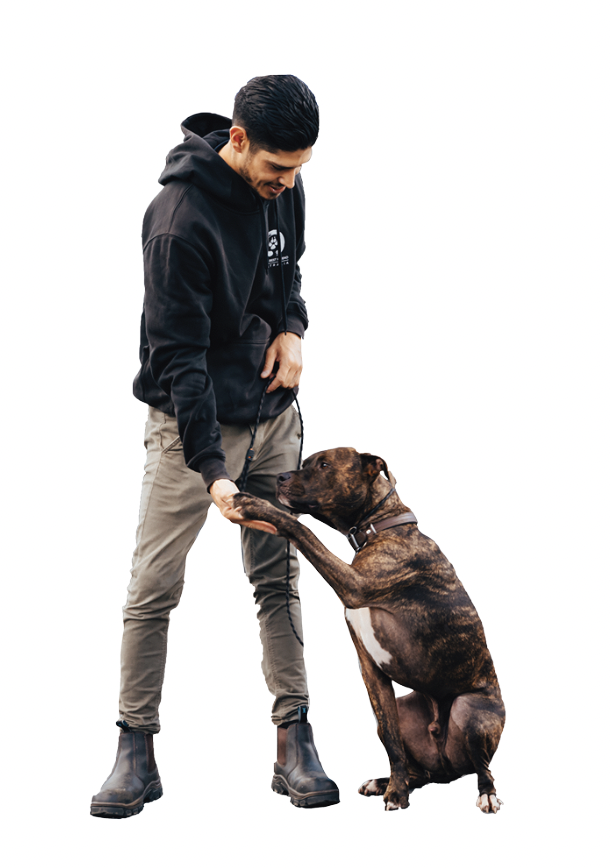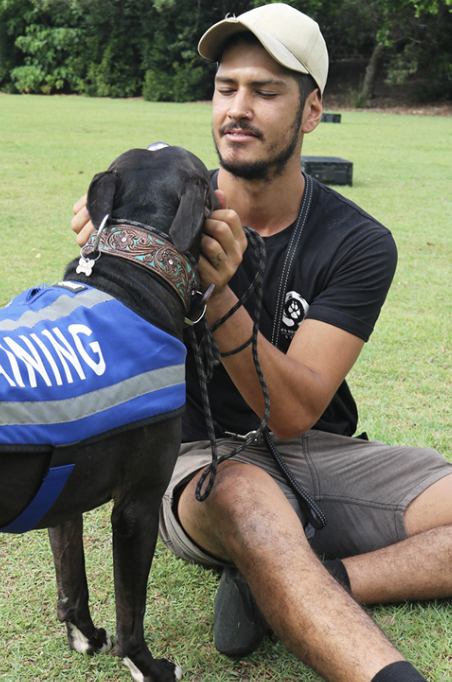Beyond Obedience
Words John Ortega
My love for dogs began at the tender age of five, sparked by a moment that forever changed my life. My brother brought home two eight-week-old American Staffordshire terriers named Luna and Mono. From that instant, I was enchanted by these incredible creatures and driven to learn everything I could about them. I was so captivated by my new canine friends that my mother would often wake up in a panic, only to find me snug and sound asleep in the kennels with the dogs.
Life with dogs was vastly different back then, around thirty years ago. Our dogs were more than just pets; they were integral members of our daily lives. They played alongside us, ran beside us on bike rides, and were always part of our adventures. This constant, immersive interaction gave me an intimate understanding of canine behaviour, allowing me to learn directly from the animals themselves. This early exposure laid the foundation for my lifelong passion for dogs.
Nowadays, the landscape of dog training has shifted. We often rely on screens and structured methods, focusing on basic commands like “sit,” “stay,” “drop,” and “leave it.” While these commands are important, they represent only a small part of what is truly essential in dog training. The modern approach tends to overlook the deeper, more crucial aspects of a dog’s wellbeing, particularly the importance of nurturing a strong, positive relationship with them.
I believe that true training success comes from focusing on the dog’s internal state and overall happiness. The phrase I use to capture this philosophy is “go and do dumb shit with your dog.” This might sound unconventional, but it underscores my belief that the relationship and enjoyment between a dog and their owner should come before rigid obedience. In practice, this means engaging in fun and meaningful activities that allow dogs to express their natural behaviours and instincts.
For example, with my pitbulls, I use games like tug-of-war to tap into their genetic instincts, such as their natural drive to engage in activities that involve pulling or biting. Through these games, I not only provide an outlet for their energy but also teach them important lessons in impulse control and discipline. This approach ensures that they are mentally, physically, and emotionally fulfilled, which helps prevent behavioural issues and fosters a stronger bond between us.
Understanding a dog’s breed is another crucial aspect of my approach. Each breed has specific traits and instincts based on their history and purpose. By learning about these traits, we can better meet their needs and reduce potential conflicts between dogs and their owners. It’s about fulfilling their inherent needs and providing an environment where they can thrive.
Nutrition plays a vital role as well. In my work specialising in behaviour modification—addressing issues such as aggression, fear, phobias, and timidity—I’ve found that diet often plays a significant role in behavioural problems. A balanced, species-appropriate diet can have a profound impact on a dog’s behaviour and overall wellbeing. Many of the aggression cases I’ve encountered were significantly influenced by dietary deficiencies. Sometimes, simply changing a dog’s food can make a remarkable difference, even eliminating the need for further training.
My training philosophy, which I call a “cynopraxic” approach, is centred on achieving harmony between the dog and their owner. This method integrates diet, family dynamics, and engaging activities to align training with a dog’s natural instincts and needs. The goal is to develop a relationship where the dog feels fulfilled and in tune with their natural behaviours, leading to a more balanced and harmonious life together.
A dog is exactly that, a dog, they are not humans and in order to live a harmonious life with them we have to provide them with exactly what a dog needs.
John is the owner of Man’s Best Friend Australia, a dog training and behaviour modification service based in Murwillumbah. Serving the Gold Coast, Tweed, and Byron Shire, John offers expert solutions for canine issues. For more information, visit www.mansbestfriendaustralia.com.au or follow @mansbestfriendaustralia on social media. He can also be reached at 0499 999 790.



